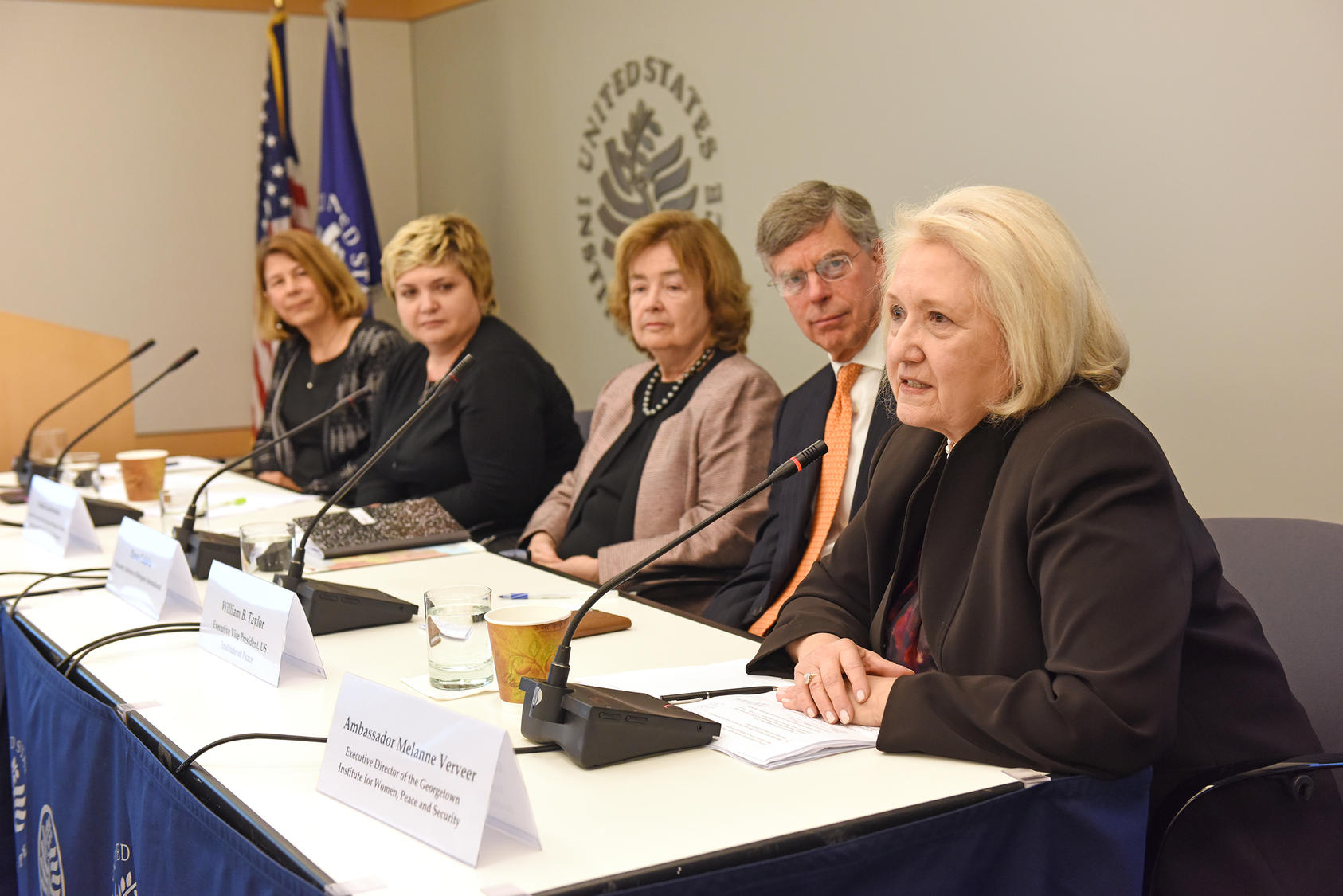Ukraine: How to Build Social Peace Amid Displacement?
The War Has Uprooted 1.4 Million—a Strain That Could be Turned to Strength
Read the Event CoverageThe Russian-Ukrainian war has uprooted more than 1.4 million Ukrainians who struggle for survival, and for futures, in cities and towns nationwide. While Ukraine’s civil society has responded vigorously to help, the prolongation of this massive displacement is deepening strains on the nation’s social cohesion and economy. How might Ukraine help its displaced citizens and their host communities become agents for national reconciliation and cohesion? On November 19, USIP gathered prominent Ukrainian and U.S. specialists to discuss strategy for such an effort.

Ukraine so far has absorbed those uprooted from the war-shattered Donbas region, mainly in cities and towns of Donetsk, Lugansk and Kharkiv provinces, and around the capital, Kyiv. Many of those host communities are among those already most vulnerable to Ukraine’s economic recession. Amid high unemployment and privation, those communities and the displaced population are showing remarkable resilience, and social upheavals have been avoided.
Still, Ukrainian civil society activists say this could change, putting social peace at risk. Can Ukraine’s impressive civil society networks, and the good will shown so far, provide a foundation for social understanding and reconciliation? Can displaced populations be given a voice to help build their relations with their host communities, some of which are themselves marginalized from political and economic life?
On November 19, Ukrainian civil society and women’s rights leader Natalia Karbowska and refugee specialist Dawn Calabia examined the displacement of Ukrainians and ways that civil society and displaced people can foster social cohesion and resilience. Former U.S. ambassador to Ukraine Bill Taylor and the former ambassador for global women’s issues, Melanne Verveer, discussed Ukraine’s situation in light of other current migration crises, and ways in which it might unfold. Continue the conversation on Twitter with #DisplacedUkraine.
Speakers
Natalia Karbowska
Board Chair of the Ukrainian Women’s Fund, Advisor at the Global Fund for Women
Dawn Calabia
Honorary Advisor at Refugees International
Ambassador William Taylor
Executive Vice President, U.S. Institute of Peace
Ambassador Melanne Verveer
Executive Director of the Georgetown Institute for Women, Peace and Security
Lauren Van Metre, Moderator
Acting Vice President, USIP’s Applied Research on Conflict Center


